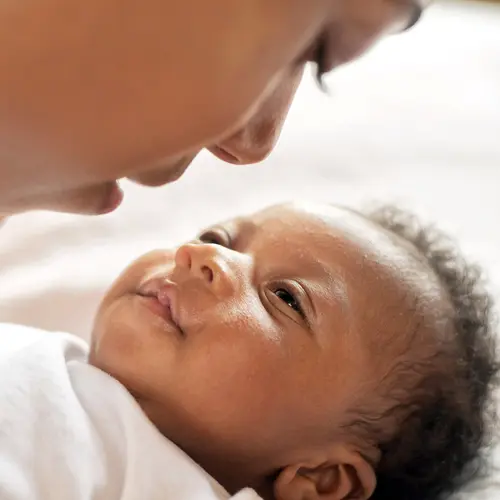Your baby keeps tugging at their ear. They seem fussy and are crying more than usual. They stop breastfeeding, or turn away from the bottle or food.
If your infant could talk, they might be trying to say, “my ear hurts.”
Symptoms
Sooner or later, nearly every child gets an infection in their middle ear. By age 3, 5 out of 6 kids have had one. The infection, also called acute otitis media, is the most common reason for trips to the pediatrician and the top cause of ear pain in babies.
Sgins that your child’s ear might need attention include if they:
- Cry a lot and seem fretful
- Don’t sleep well
- Have a fever of 100 F (37.8 C) or higher
- Pull at one or both ears
- Leak fluid from the ear
- Have trouble with balance
- Show signs that their hearing isn’t as sharp as usual
Ear Pain Causes
Cold/upper respiratory infection. A cold triggers fluid build-up, causing swelling and pain in the ear.
Ear infection. If your child has a sore throat or another bacterial infection, the germs can reach the middle ear and set off an infection in there. Tissue around their eardrum can redden and swell. Fluid can build up.
Eustachian tube dysfunction. This tube between your child’s throat and middle ear is much smaller and less angled than yours. It can make it harder for fluid to drain. If the tube swells or gets clogged with mucus, the resulting pressure buildup can trigger ear pain. This can often happen with colds and other viral infections.
Other Possible Reasons
Less common causes of baby ear pain include:
An outer ear infection, aka swimmer’s ear, which can happen if the ear canal gets scratched and becomes infected. You’ll usually need prescription antibiotic drops.
Airplane ear. This common condition happens when big changes in cabin air pressure during takeoffs or landings trigger an earache. The best way to prevent or relieve it is to help your child drink or swallow something.
What You Can Do
Doctors aren’t as quick to prescribe antibiotics these days because ear infections often clear up on their own.
If your baby is older than 6 months, their doctor might choose to hold off for a couple of days to see if the symptoms pass. In the meantime, ask your pediatrician if it would help ease your child’s discomfort if you:
- Give them over-the-counter infant pain relievers.
- Use saline drops or spray to lower swelling and stuffiness from a cold. If the blocked ear drain doesn’t open up, your doctor may suggest putting in small ear tubes for a while.
- If your baby is prescribed antibiotics, finish all the medicine even if they get better. Otherwise, the infection can come back quickly.
When to Call the Doctor
Call your baby’s doctor if you think they might have an ear infection, and:
- They’re younger than 6 months.
- Symptoms don’t go away after 1-2 days.
- They have a fever.
- You can tell their ear pain is severe.
- Your baby stays restless and whiny after getting over a cold or chest infection.
- Fluid, pus, or bloody discharge comes out of the ear.
- Your baby is not eating or drinking enough.


